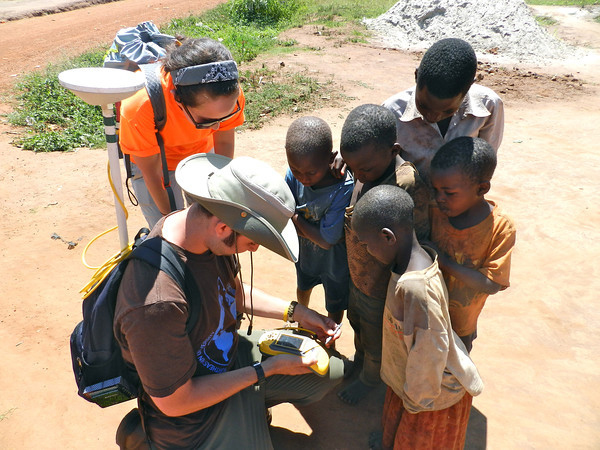Clean water for a Ugandan village

The Ugandan village of Bbanda, home to about 1,100 people, has severely limited access to drinkable water. Open sources are contaminated with escheria coli and the boreholes that provide potable water are far from most homes in the village.
“In the past, we’ve built rainwater tanks to help alleviate some of the travel need, especially for students who often miss school to collect water for their families,” said Kevin Rathbun, a civil engineering major and leader of the Uganda program for Northeastern’s chapter of Engineers Without Borders. “But rain tanks are a Band-Aid for the real problem, which is water scarcity and quality.”
Later this month, a team of students from Northeastern’s chapter of EWB will travel to Uganda to implement the first phase of a project aimed at improving access to potable water in and around Bbanda. The new system, which will be installed by locals and constructed from equipment obtained in the area, will pump water from a borehole to two water storage tanks at the top of Bbanda Hill. From there, the water will flow to 12 tap stands in the neighborhood, providing a steady flow of clean water to the community while maintaining the communal nature of water-gathering.

Many people in Bbanda, Uganda get their water from sources contaminated with e coli.
“This Uganda project is huge,” Rathbun said. “It’s a major step toward allowing this community to be self-sufficient.”
Team members have spent most of the last year planning this summer’s trip, making sure the project is ready to go when they arrive at the end of this month. Locals are involved in the planning and construction, meaning they have the know-how to maintain and repair the system.
This summer’s work in Uganda will be conducted in two stages by two teams, both of which will spend three weeks in the African nation, working from late July through early August. The entire project may not be finished by the time students return to campus for class in the fall, but many of the most complicated components—generators, new concrete storage tanks, and the majority of 11,000 feet of piping—will be in place, making it possible for local workers to finish the job.

Northeastern students work with locals on the ground to complete their engineering projects.
Since its inception in 2004, Northeastern’s chapter of Engineers Without Borders has brought clean water to more than 2,000 people in Bbanda and El Carrizalito, Honduras, tailoring each project to suit the culture, geography, and unique issues facing each region. The Bbanda project is the group’s most ambitious to date, bringing water to more people than any of its previous efforts.
“There are a lot of places in the world where people are just getting by,” said Anthony Maiorano, a mechanical engineering major and EWB member. “But their quality of life would really improve with something like a new water system.”
Many students in Northeastern’s chapter of EWB bring real-world experience to the water projects, having completed co-ops at engineering companies around the world.
“That’s one of the thing that makes our chapter so strong,” said civil engineering major Liz Cherchia, the design lead for the Bbanda project. “Our members have practical experience in engineering and that directly affects the work we’re able to do.”





